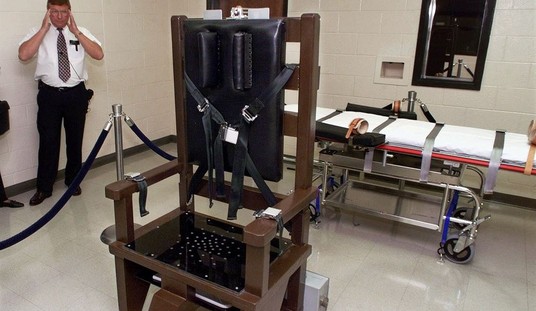When Seymour Hersh first published his allegations that Barack Obama and the White House lied significantly about the raid that killed Osama bin Laden, the story was met with considerable skepticism, to say the least. Much about his tale didn’t make much sense, including Hersh’s insistence that no broad firefight had taken place, and that the Saudis were supplying the cash for bin Laden’s upkeep. CNN’s Peter Bergen, who went to the compound immediately after the raid, called Hersh’s story “a farrago of nonsense,” and former CIA deputy director Mike Morrell said he had to stop reading the story because not one sentence of it was true. Hersh insisted that the story was accurate, and that it followed up on work already done by Carlotta Gall at the New York Times, among others.
So what does Gall think of the story? She thinks Hersh is on the right track, although not on all of his details:
Among other things, Hersh contends that the Inter-Services Intelligence directorate, Pakistan’s military-intelligence agency, held Bin Laden prisoner in the Abbottabad compound since 2006, and that “the C.I.A. did not learn of Bin Laden’s whereabouts by tracking his couriers, as the White House has claimed since May 2011, but from a former senior Pakistani intelligence officer who betrayed the secret in return for much of the $25 million reward offered by the U.S.”
On this count, my own reporting tracks with Hersh’s. Beginning in 2001, I spent nearly 12 years covering Pakistan and Afghanistan for The Times. (In his article, Hersh cites an article I wrote for The Times Magazine last year, an excerpt from a book drawn from this reporting.) The story of the Pakistani informer was circulating in the rumor mill within days of the Abbottabad raid, but at the time, no one could or would corroborate the claim. Such is the difficulty of reporting on covert operations and intelligence matters; there are no official documents to draw on, few officials who will talk and few ways to check the details they give you when they do.
Two years later, when I was researching my book, I learned from a high-level member of the Pakistani intelligence service that the ISI had been hiding Bin Laden and ran a desk specifically to handle him as an intelligence asset. After the book came out, I learned more: that it was indeed a Pakistani Army brigadier — all the senior officers of the ISI are in the military — who told the C.I.A. where Bin Laden was hiding, and that Bin Laden was living there with the knowledge and protection of the ISI.
Gall points to a report yesterday in a Pakistani newspaper that corroborates Hersh’s central claim — that it was a walk-in, and not sleuthing, that uncovered bin Laden’s whereabouts:
Well-informed intelligence circles in the garrison town of Rawalpindi concede that the vital information about the bin Laden compound was actually provided to the Americans by none other than an ISI official – Brigadier Usman Khalid. The retired Brigadier, who has already been granted American citizenship along with his entire family members, persuaded Dr Shakil Afridi, a Pakistani physician, to conduct a fake polio campaign in the Bilal Town area of Abbottabad to help the Central Intelligence Agency hunt down Osama.
Gall writes that reporter Amir Mir “is sufficiently well connected that he should be taken seriously.” He could also be talking to the same sources that Hersh found, in which case this isn’t so much corroboration as it is amplification. Still, it bolsters Hersh’s contention at least to the nature of the American effort.
If that’s the case, then, it also raises the questions Hersh tried to answer in his article. If the Pakistani military knew of his presence in Abbottabad, did they cooperate in the raid and use Afridi as a patsy? Gall’s sources told her that the military issued a stand-down order to local police, but waited to respond to the raid until well after it was over. But if Pakistan wanted to allow the US to get to bin Laden, all they had to do was to grab him themselves and toss him over the border into Afghanistan (or the Hindu Kush), even if they did so at 4,000 feet or so to ensure that we couldn’t interrogate him. The SEAL raid seems like a very risky venture for a trade-off, and it would have prevented Obama from double-crossing them on the cover story.
The White House denies Hersh’s story in its entirety, and Hersh has had enough stories blow up in his face that he doesn’t have “lights out” credibility. If Gall backs him up, though, the White House may have difficulty dismissing it easily.








Join the conversation as a VIP Member